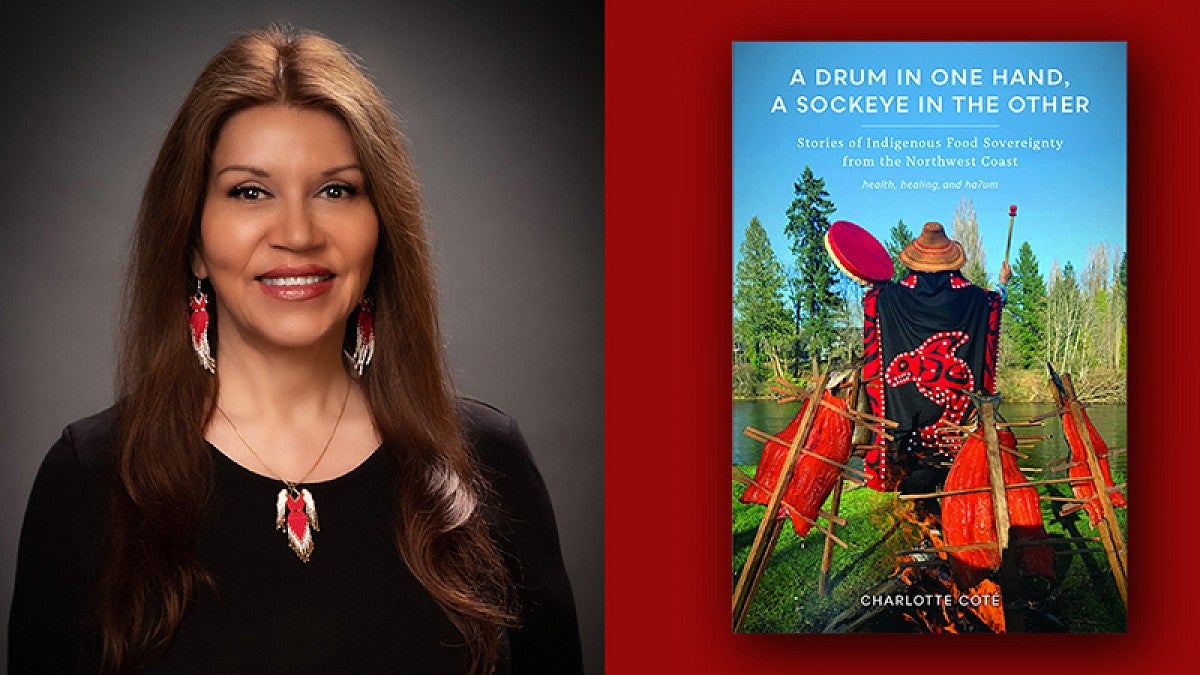Indigenous scholar Charlotte Coté will share stories from her Tseshaht community as part of the annual Robert D. Clark Lecture on Oct. 6.
Her talk, “The River That Runs Through Us,” will be at 7 p.m. in Room 282, Lillis Hall. It is free and open to the public.
Cote’s lecture is the first in the Oregon Humanities Center’s 2022-23 “Belonging” series. Her lecture will be ASL interpreted and will also be livestreamed and recorded. Register to attend in person or virtually on the Oregon Humanities Center website.
Cote grew up in the Nuu-chah-nulth community of Tseshaht on the west coast of Vancouver Island along a river whose Tseshaht name means “cleansing or washing.” The river was named the Somass River by the white settlers who began moving into the Tseshaht territory in the mid-1800s.
“When I was young the … sockeye salmon were so plentiful that there were shallow places in the river where you could walk, and you would feel the salmon swimming between your legs,” Coté said. “Having this plentiful salmon supply made us dependent on it as an abundant and healthy food source, and many people in my community became avid fishers, including myself.”
She will share stories from her Tseshaht community, stories of the river that streams through her ancestral territory. She will discuss how, through harvesting, processing and sharing salmon, Tseshaht reinforce their cultural bonds to their salmon relatives, to their ancestral waterways and homelands, and to each other.
Maintaining the relationship is central to Tseshaht food sovereignty. But, as Coté explains, realizing food sovereignty for Northwest coast Indigenous communities such as hers comes with many challenges. Pollution, habitat destruction, fish farms, environmental degradation and climate change threaten the ecosystems where these relationships thrived for millennia.
Coté is a professor in the Department of American Indian Studies at the University of Washington. She has dedicated her personal and academic life to creating awareness around Indigenous health and wellness issues and to working with Indigenous peoples and communities in revitalizing their traditional foodways.
In her recent book, “A Drum in one Hand, A Sockeye in the Other: Stories of Indigenous Food Sovereignty from the Northwest Coast,” Coté shares contemporary Nuu-chah-nulth practices of traditional food revitalization in the context of broader efforts to re-Indigenize contemporary diets on the Northwest coast.
Coté is the author of the book “Spirits of Our Whaling Ancestors: Revitalizing Makah and Nuu-chah-nulth Traditions” as well as numerous articles. She serves as series editor for the UW Press’ Indigenous Confluences Series and is the founder and chair of the UW’s annual Indigenous Foods Symposium.
The recording will be available on the Oregon Humanities Center’s YouTube channel. For disability accommodations, which must be arranged by Sept. 29, email ohc@uoregon.edu or call 541-346-3934.


